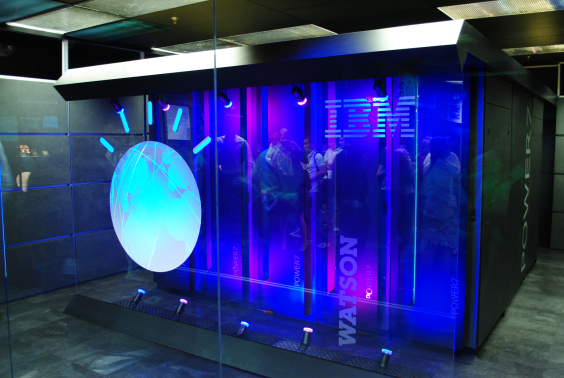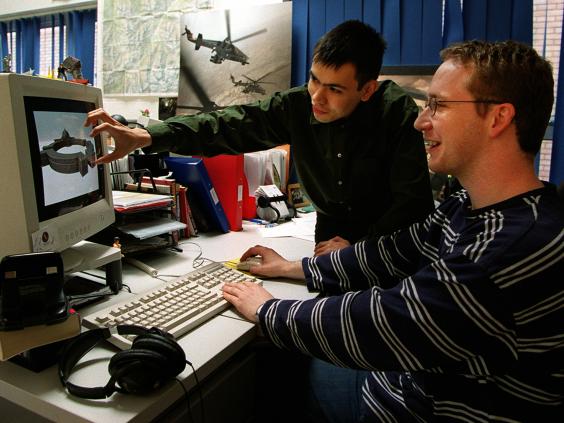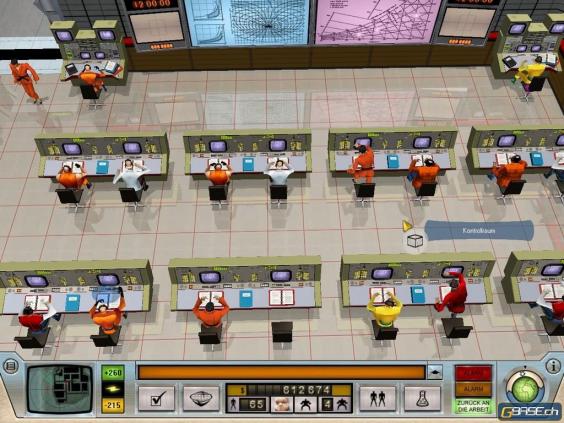Demis Hassabis, a computer scientist, is understood to have struck the deal with Google for his secretive start-up business Deep Mind Technologies, which specialises in artificial intelligence (AI) for computers.
Hassabis, 37, has built the company by bringing together neuroscientists and computer engineers in an effort to use technology and medical research to help machines to mimic the brain’s ability to improve performance. He previously led a study at University College London in 2009 that scanned human brains and found “just by looking at neural activity we were able to say what someone was thinking”.
Google founder Larry Page, who has expressed interest in making search commands easier by having an implant in the brain, is understood to have led the move to buy Deep Mind. Google is exploring smart technology that will enable it to go into space travel and create self-driving cars.
The website The Information claimed that Google had beaten Facebook to the acquisition and had sealed the deal after agreeing to set up an ethics board to ensure that the AI technology was not abused.
Hassabis is known within the computer gaming industry for having “a brain larger than a planet”. He began playing chess when he was four years old, reached Master Standard by the age of 13 and represented England.
He did his first work in the games industry only two years later when he entered a competition to design a clone for Space Invaders. Going into the industry seemed like “the perfect marriage between games and programing”, he has said.
By the age of 16 – having already completed his A-levels – Hassabis began working at games company Bullfrog and co-wrote the successful game Theme Park – which was based on an amusement park and released in 1994 - in his year off before going to the University of Cambridge. His student friends struggled to believe he was the author of such a successful product until they saw his name on the packaging.
After graduating with a triple first in computer science from Queen’s College, Hassabis quickly returned to the games industry and became a lead AI programmer at Lionhead Studios, the Surrey-based company founded by British computer games pioneer Peter Molyneux. Very soon afterwards the young graduate went off to set up his own business, Elixir Studios, where he was executive designer of a game called Republic: The Revolution, which attempted to recreate a “living, breathing city” and was nominated for a BAFTA.
Although he has accepted that the project was over-ambitious, he told games website CVG that he had always been prepared to take chances. “I’m actually more worried about not taking risks and playing safe, not pushing myself enough,” he said. “It’s a bit perverse I suppose, and asking for trouble. I’ve always been prepared to jump in at the deep end and see if I can swim or not.”
For many years, Hassabis was a successful competitor in the London-based Mind Sports Olympiad, taking part in its elite Pentamind contest – a sort of mental pentathlon. Hassabis was Pentamind champion in five of the first seven years after the Olympiad was founded in 1997. His success meant that he was described as “probably the best games player in history”. Hassabis is an expert in the Japanese board game Shogi and an accomplished poker player.
His next computer game Evil Genius, which was based on a Bond-style villain in an island lair, was more favourably received by critics. After selling the rights to publishers, Hassabis sold the studio and went into medical science in order to further pursue his interest in AI technology. He was elected a fellow of the Royal Society of Arts for his game designs.

Hassabis co-wrote 'Theme Park', which was released in 1994
As
a cognitive neuroscientist he specialised in autobiographical memory
(combining personal recollection and general knowledge) and amnesia. He
investigated whether patients with lesions to the Hippocampus parts of
their brains suffered damage to their imagination process as well as
their memory recall. He completed his doctorate in cognitive
neuroscience in 2009 at University College London and became a fellow at
the college’s Gatsby Computational Neuroscience Unit and a visiting
scientist at MIT and Harvard.In 2012, he left academia to set up Deep Mind Technologies, developing technology for e-commerce and gaming and creating computer systems capable of playing computer games. The company, which was based in central London’s Russell Square before moving to Fenchurch Street, has a reputation for secrecy. Its aim is said to be to develop computers that think like humans. It is said to employ 50 people including co-founders Shane Legg, a 40-year-old New Zealander, and Mustafa Seleyman, a 29-year-old Briton.
Deep Mind’s investors include US Tesla car mogul Elon Musk, early Facebook investor Peter Thiel and the family of London app creator Nick d’Aloisio, who are all set for windfalls following the sale to Google. D’Aloisio, from south London, sold his news based app Summly to Yahoo! for a reported £19m early last year.



No comments:
Post a Comment